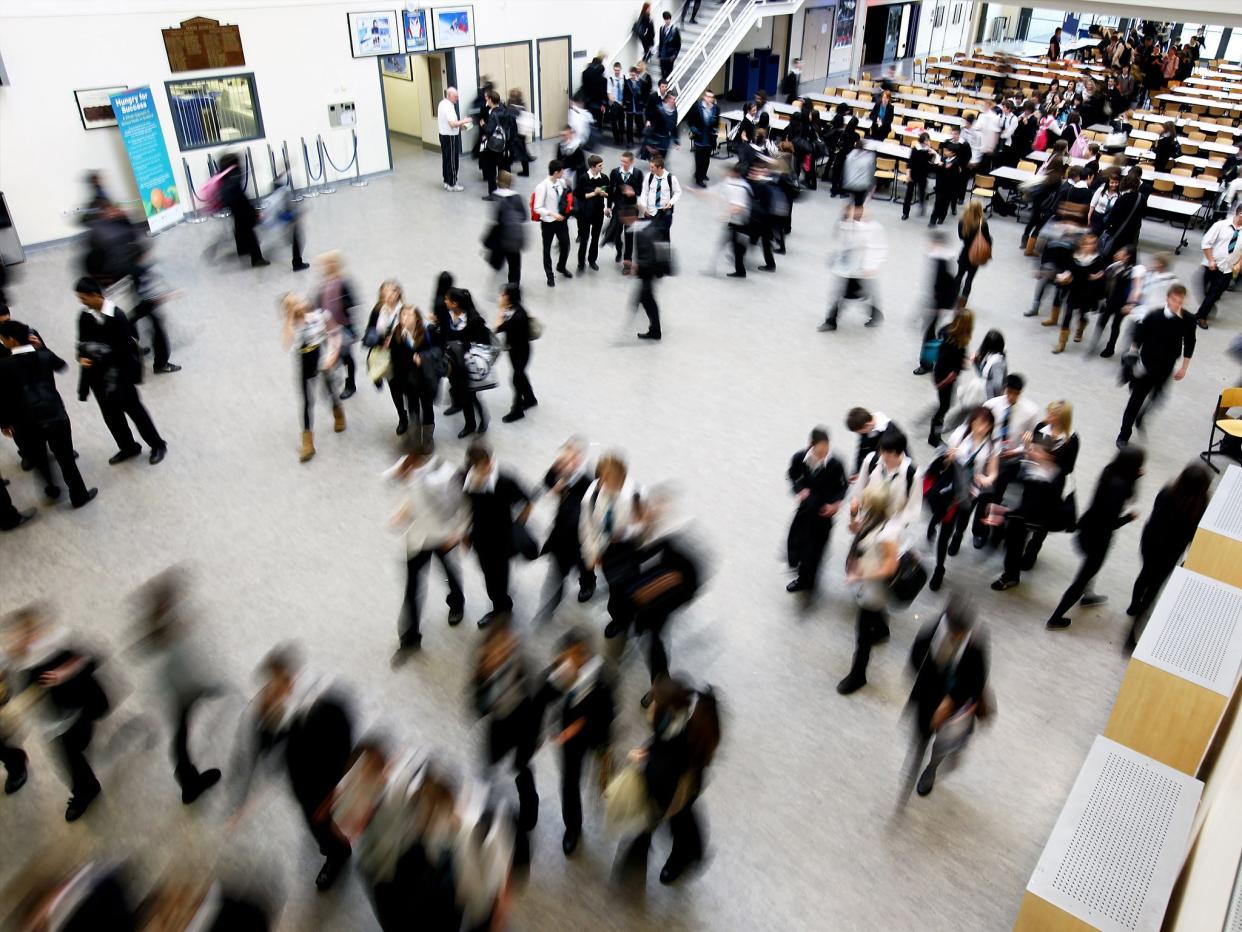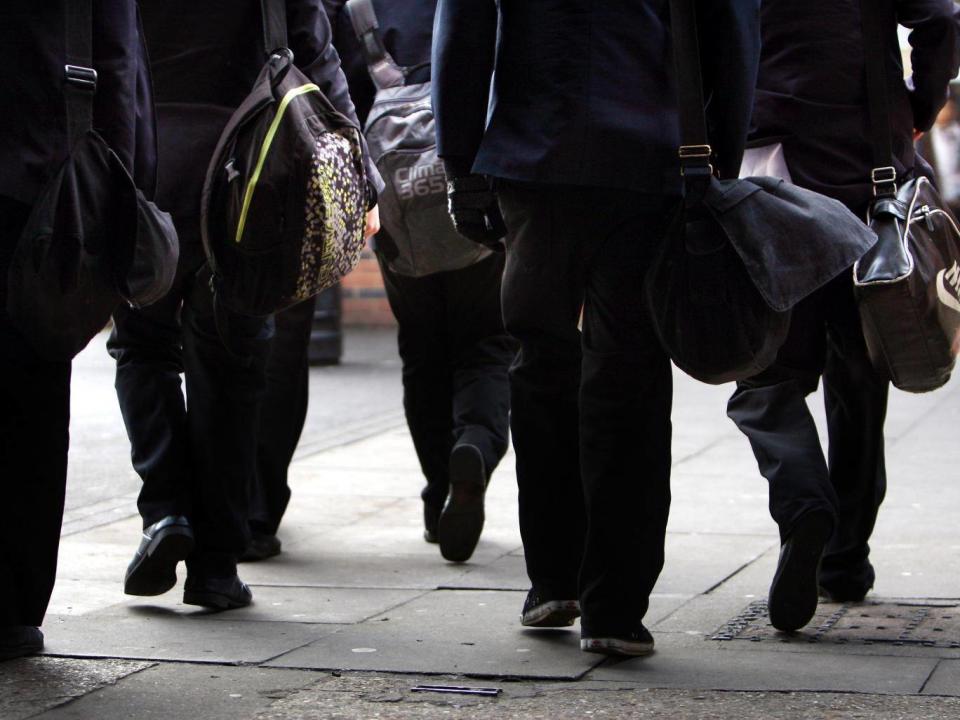Headteachers blame funding cuts as schools expel 40 pupils each day

The number of permanent exclusions from schools has reached its highest point in nearly a decade – with more than 40 children a day now being banned from state schools in England.
Headteachers say funding cuts to schools and children’s services are to blame for the hike, saying a lack of resources has made it harder to prevent behavioural problems from escalating.
Overall, schoolchildren were permanently expelled on 7,720 occasions in 2016-17, compared to 6,685 in 2015-16 – a rise of 15 per cent, official government statistics show.
This is equivalent to 40.6 children a day, an increase from 35.2 last year.
The Department for Education (DfE) figures show that persistent disruptive behaviour is the most common reason for pupils being expelled, accounting for more than a third of permanent exclusions.
But there has also been a rise in the number of schoolchildren being excluded for assaults against pupils and adults, racist abuse, sexual misconduct and drug and alcohol-related reasons.
More than four in five (83 per cent) of permanent exclusions were in secondary schools, the government data shows. Excluded children can be moved to other schools, but in their GCSE years they are more likely to be placed in alternative provision – such as pupil referral units (PRUs).
Fixed-term or temporary exclusions also increased in England’s schools – from 339,360 in 2015-16 to 381,865 in 2016-17 – meaning that around 2,010 pupils a day are suspended.
Pupils with special educational needs accounted for almost half of permanent exclusions (47 per cent) and 45 per cent of temporary exclusions, the latest figures show.
And poorer pupils – children eligible for free school meals – were around four times more likely to be excluded, permanently or temporarily, than their richer classmates.
The DfE recently launched a review of exclusions in schools to look at why children with special educational needs, or from the poorest families, are more likely to be excluded than their peers.
Ministers have also raised concerns about schools “off-rolling” pupils to improve league table positions through backdoor exclusions. But these children do not appear in the official exclusion figures.
Geoff Barton, general secretary of the Association of School and College Leaders (ASCL), said: “We are extremely concerned that this increase in exclusions is a result of the school funding crisis and cuts to local children’s services.
“Schools have had to cut back on the individual support they are able to give students, making it more difficult to provide early intervention and prevent behavioural problems from escalating.”

He added: “At the same time council support services for vulnerable families have been cut back, meaning that schools are having to pick up the pieces.
“Schools only exclude pupils as a last resort and when all other avenues have been exhausted. The government needs to provide the funding that is necessary to provide support at an early stage.”
Paul Whiteman, general secretary of headteachers’ union NAHT, warned that the measures schools take to ensure pupils behave well and are supported were “under threat” because of funding cuts.
He said: “Schools can’t do it on their own. To avoid exclusions, they need support from the other local services around them.
“Exclusion must not be thought of as getting a child ‘out of the way’ but of finding a better place to serve that child.
“The issues that underpin exclusions reach far beyond the school gates, so schools need access to expert resources to help them support at an early stage those students who need more help.”
Mike Kane, the shadow schools minister, said the sharp rise in exclusions should be a “matter of deep concern” for the government.
“The number of children with complex needs is rising, yet the Tories’ cuts to support services and their continual underfunding of the high-needs budget has left many teachers, schools and local authorities unable to offer the support these children need,” he said.
Nick Gibb, schools minister, said permanent exclusions should only be used as a “last resort” but he added that they would support teachers who take “proportionate” steps to ensure good behaviour.
He added: “Whilst we know there has been an increase in exclusions, there are still fewer than the peak 10 years ago.
“We recognise some groups of pupils are more likely to be excluded than others which is why we launched an externally-led review to look at how schools are using exclusions and why certain groups are disproportionately affected,” Mr Gibb said.

 Yahoo News
Yahoo News 
